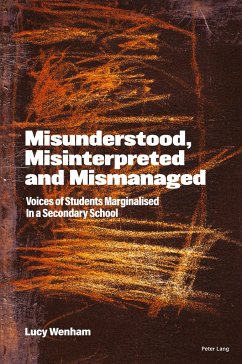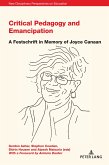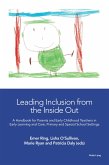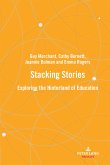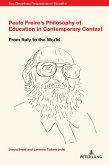This ethnography gives a voice to a small group of students who are required to spend time in a school withdrawal-unit away from the mainstream classroom setting, most commonly following a period of sustained low-level disruption; students who all too often feel that their voice is not heard. What emerges through the telling of their lived experiences, is the breadth and diversity of ways - from the blatant to the inadvertent, the miniscule to the looming, the inter-personal to the structural - through which they make sense of their tangled, intricate, oftentimes deeply-individual marginalisation, as they navigate schooling day-by-day. Structural issues of transition, ability groups and pathways are seen to fuel marginalisation, as are aspects of classroom practice, such as behaviour management policy enactment or the choice of pedagogical approach. Teacher-student relationships matter hugely, as does being known, respected and understood. Individual factors also play a role,with special educational needs, mental health concerns and family breakdown, all feeding into engagement and attitudes to school. Taking the experiences of these students seriously, the analysis shows that what is actually needed to tackle the assorted, messy, multi-dimensional nature of such lived marginalisation, is a radically comprehensive education system structure, with the social at its heart, where critical pedagogy is embedded classroom practice.
« This is a very timely book. It speaks for and with a group of young people who are all too often the forgotten outsiders of education. The stories told are tragic and poignant in equal measure. The consequences of neoliberal educational reform for vulnerable students as portrayed here are intolerable. This vibrant and committed book should be required reading for every policymaker and every teacher.» (Professor Stephen Ball)
«From its preface through to its conclusions of critical hope I was hooked by this powerful text. As a former teacher, Wenham writes with passion, integrity and scholarly authority on the consequences of disengagement from mainstream schooling. In championing a radically comprehensive education system, her work sits comfortably alongside Stenhouse, Fielding and Rudduck. For practitioners, policy makers and researchers this is an essential text.» (Professor Gerry Czerniawski)
«From its preface through to its conclusions of critical hope I was hooked by this powerful text. As a former teacher, Wenham writes with passion, integrity and scholarly authority on the consequences of disengagement from mainstream schooling. In championing a radically comprehensive education system, her work sits comfortably alongside Stenhouse, Fielding and Rudduck. For practitioners, policy makers and researchers this is an essential text.» (Professor Gerry Czerniawski)

